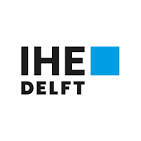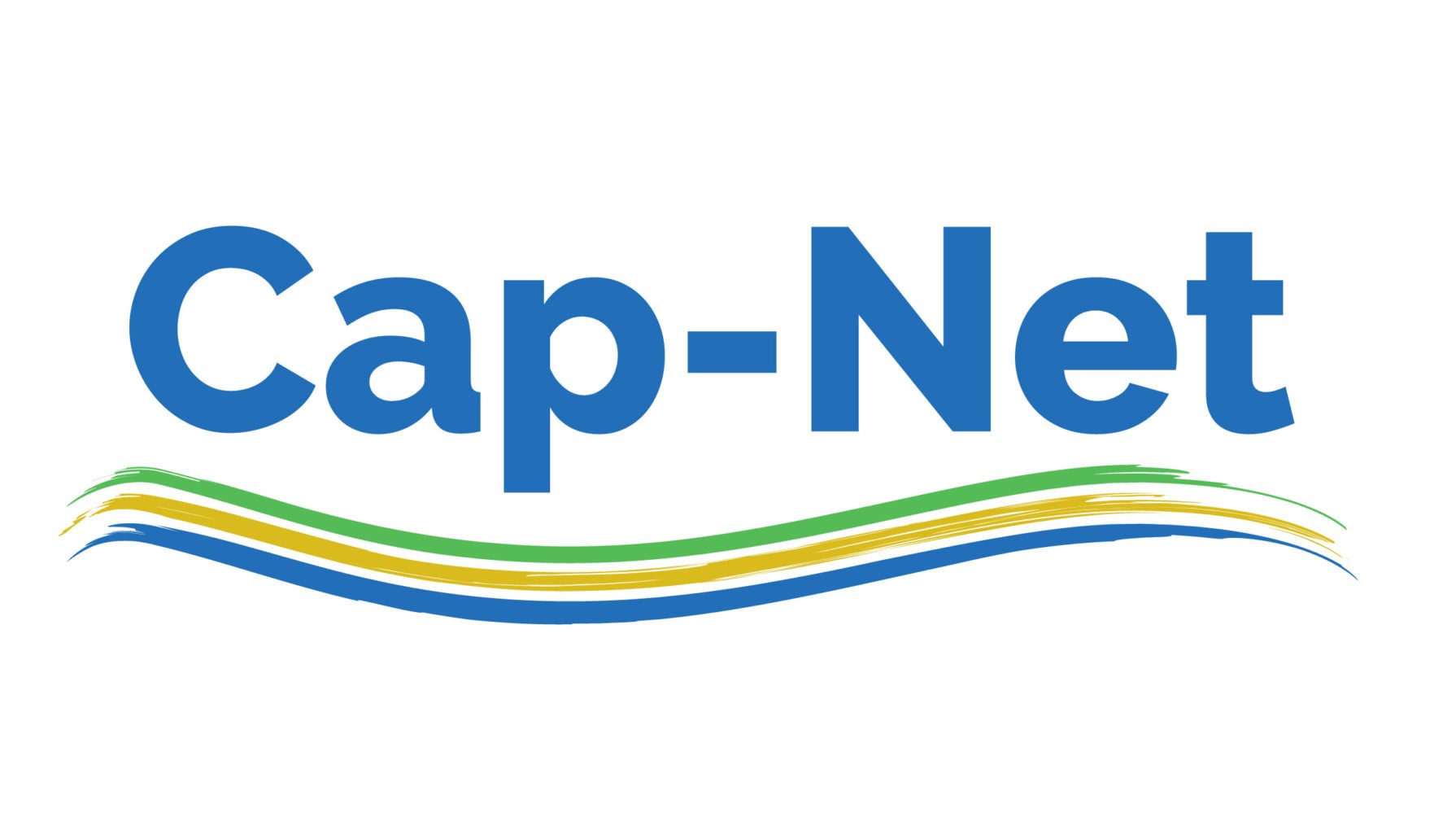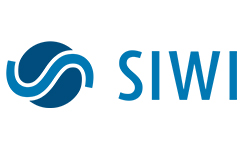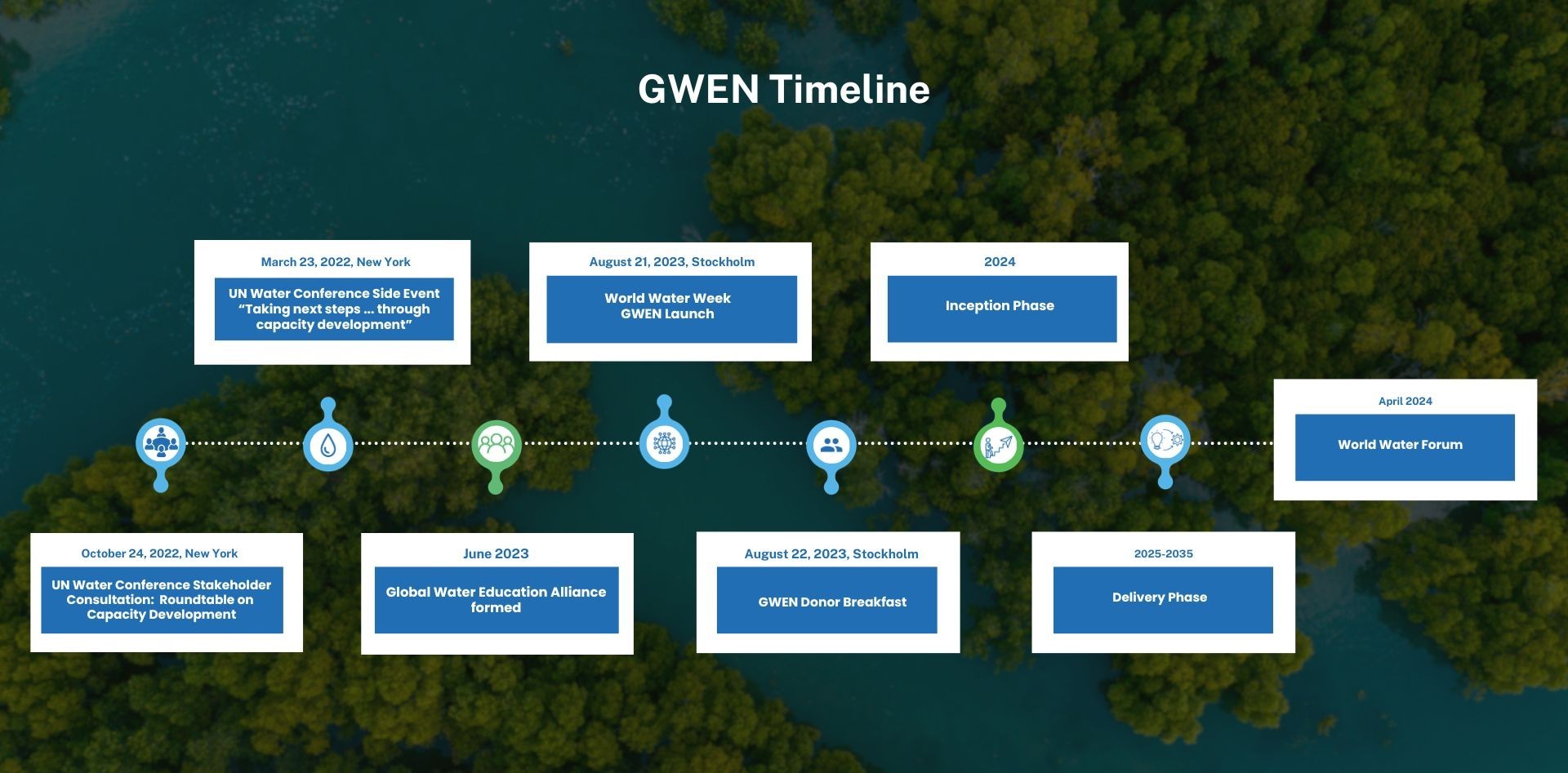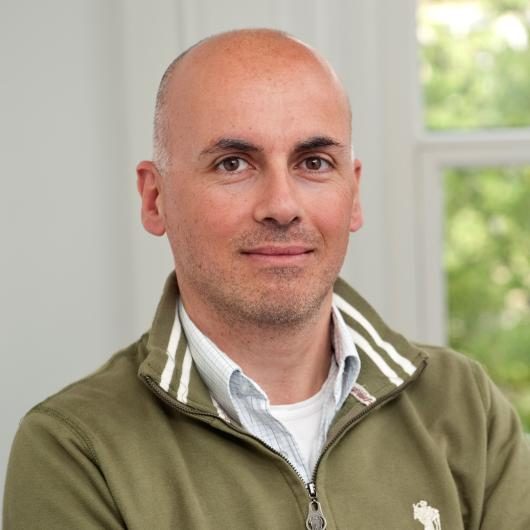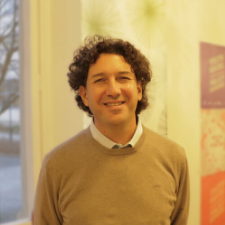GWEN - Global Water Education Network
Gamechanger for SDG 6 Acceleration
“We can live up to the promise of sustainable water future by implementing ... the Global Water Education Network to build capacity of institutions and people, especially to support developing countries."
Csaba Kőrösi, President of the 77th session of the General Assembly in his remarks to the closing of the 2023 UN Water Conference
About GWEN
UNESCO and the Global Water Education Alliance of IHE Delft, Cap-Net UNDP and SIWI are founding partners and leading the coordination and implementation of the GWEN game changer, initiated and shaped in connection to the UN 2023 Water Conference and its resulting Water Action Agenda. The GWEN initiative is also open to any organization or platform working on water education, as we consider all part of the global water education network. We aim for the network to be truly global, encompassing collaborating partners from North to South. GWEN was officially launched at World Water Week 2023 in Stockholm.
Through GWEN, the founding partners will contribute to the following objective: Develop and deliver on a common global agenda to accelerate capacity development for the water sector in low- and middle-income countries.
GWEN is a coordination mechanism operating in collaboration with existing networks, institutions and organizations to address SDG6 related capacity development challenges. GWEN aims to deliver:
The core activities of GWEN are:
CAPACITY DEVELOPMENT PROGRAMMES
CAPACITY DEVELOPMENT PRODUCTS
CAPACITY DEVELOPMENT LABORATORIES
Joint implementation of demand-driven capacity development programmes on the basis of regional/country scope and through the identification of appropriate resources.
Serving as a knowledge brokering and exchange space for water education and capacity development, to showcase tools, products and services, share learning, and adapt approaches and curricula.
Undertaking communication and advocacy activities within and outside the network on key issues, such as simplifying messages for decision-makers and involving partners in the UN-Water family (and beyond) in capacity development initiatives.
About GWEN Partners
IHE Delft Institute for Water Education
The institute addresses water and sanitation challenges through education, research and capacity development, at global, national, local and even microscopic scales – the latter in their laboratories. The institute focuses on all water-related fields, including social sciences, engineering and more. Their world-class experts teach and research fields such as climate change adaptation, governance, water diplomacy, desalination, water supply, wetlands and sustainable hydropower.
The Stockholm International Water Institute, SIWI, works globally to change how water is understood, valued and managed. As advocates and advisors, they show how improved water governance is key to a fairer, more prosperous, and resilient future. SIWI is a not-for-profit institute with a wide range of expertise in water governance – from sanitation and water resources management to water diplomacy. They create knowledge, develop capacity, and offer policy advice to countries, communities, and companies.
Cap-Net is UNDP´s global network for capacity development in sustainable water management within the Global Water and Oceans Governance Support Programme. Our work and strategic directions are in eradicating poverty in all its forms and dimensions; accelerating structural transformations for sustainable development; and building resilience to crises and shocks. Our vision is “Water Knowledge for All". Our mission is strengthened individual and institutional capacity, and knowledge base to formulate and implement relevant policies, laws and strategies at country, regional, water basin, and source-to-sea scales.
UNESCO is one of the main UN Agencies engaged in water science, knowledge and policy issues. UNESCO works to build the scientific knowledge base to help countries manage their water resources in a sustainable way through the Intergovernmental Hydrological Programme (IHP) and the World Water Assessment Programme (WWAP), through leading the UN-wide World Water Development Report and through numerous Centres and Chairs on water around the world.

